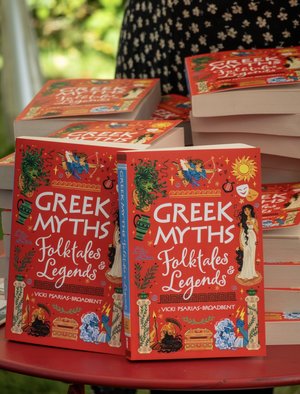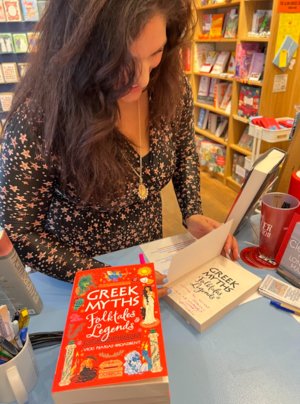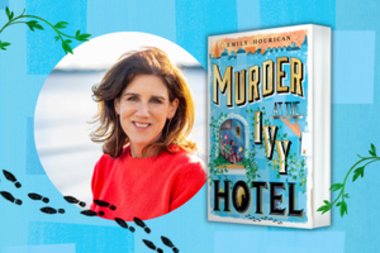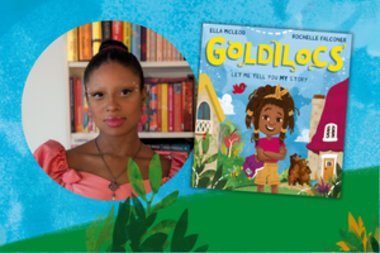Greek Myths: Reclaiming the Narrative
Greek Myths: Reclaiming the Narrative
Writing my debut children’s book, Greek Myths, Folktales & Legends felt, and still feels, like a huge responsibility, not only to my publishers Scholastic UK, but to my ancestors, and most importantly, my young and impressionable readers.
Honouring the legacy of my forefathers and mothers – the ancient Greeks – whilst reclaiming their narratives was critical to me. Retelling these world-famous tales, but with a more feminist and egalitarian perspective, and in my own voice, which was reflective of my own values and much of society today, was just as important as reflecting on the past.

Myths began as oral tales, passed down from generation to generation, and the ancient Greek stories date back to over 2500 years. The ancient Greek poets Homer and Hesiod are known as the first to have written inscriptions of these folktales on to tablets preserving them.
In taking the baton from these poetic giants – or flame would be more appropriate – and modernising these stories, I wanted to reframe the narrative. Particularly with characters such as the well-known Medusa who was, in my interpretation compromised by Poseidon and turned into a gorgon by the jealous Athena, goddess of war. I did not want her to be demonised as prior versions have – which reflected the inequalities and sexism apparent in those times and thereafter.
Thankfully, the ancient Greeks believed that the gods and goddesses who lived in gilded palaces above Mount Olympus were as flawed as the mortals they ruled over (and their audience, those who listened and read about them). For example, Zeus, ruler of the gods, was known for his outrageous behaviour and pompous attitude. He was selfish, beguiling towards other women – even disguising himself as their husbands, endlessly hurting his wife Hera with his extra marital affairs. This in turn, would evoke anger and rash behaviour from her, most memorably towards the sweet fairy, Echo, in the myth, Narcissus and Echo. Frustrated that she too might love her husband, Hera cast a spell over Echo, forbidding her to speak again, unless she was spoken to first. She ended up without the love of Narcissus and withered away, her voice only remaining in the reverberations of caves. This made for tantalising material for an author. To show the light with the shade, and how cruel these deities often treated mortals, demi-gods and one another, resulted in hopeful dynamics and exciting stories.

As a screenwriter originally, I needed my characters to feel well-drawn and three- dimensional. They had to have a reason and purpose for their actions and inaction, as characters must do so in film too (so many movies are inspired by myths of course). Creating three-dimensional characters I understood entirely within these well-known plots, and sometimes rare stories I unearthed, was a creative challenge I relished. I needed to humanise those I was writing, however bad their behaviour, whilst inviting the reader to make up their own minds about them.
Why was Zeus so callous? Why did Athena have to be the best whatever the outcome?
In the story of Arachne, which literally translates to spider in Greek, Athena humiliates and humbles a young female weaver, because she cannot bear for another to rival her own talents in tapestry. There are, of course, epic tales of bravery in Jason and the Golden Fleece, and Odysseus, too.
Each of my stories ends with a “Moral of the Myth” section. As a former teacher myself, I wanted to include as a reference for other teachers, parents and children; to guide them on the meaning behind the myth. King Midas greedily sought after gold, but at what cost? Icarus felt the pull of the sun after being imprisoned, finally free, only to fall to his end. Pandora was tricked and blamed for her natural impulse to open a box, releasing the world’s ills, but was it really her fault? The moral section will spur on discussion, debate and hopefully right some wrongs along the way!
My only goal is my reader enjoys these myths and finds meaning in their own lives because of them! Happy reading!
Vicki Psarias-Broadbent is a British Greek Cypriot who was read Greek myths as a child. Writing this book was a dream come true. You can find out more about Vicki over on her blog, Honest Mum.
Greek Myths, Folktales & Legends
A beautiful new edition of 20 Greek myths, retold for a younger audience. From raging gods and goddesses to tales of brave and foolish mortals, this collection has something for everyone.
Stories include popular myths and folktales from across ancient Greece. Explore the consequences of greed in The Midas Touch; fly too close to the sun in The Fall of Icarus; and follow the life of a brave female warrior in The Tale of Atalanta. Discover lesser well-known stories such as Narcissus and Echo, Apollo and Daphne, and Jason and The Golden Fleece.
Similar Posts
-

A Q&A with Lucy Edwards
We spoke to blind broadcaster, content creator and disability activist, Lucy Edwards, about her new book, Ella Jones vs the Sun Stealer.
-

The Influence of History in Children’s Fiction by Emily Hourican
Hear from bestselling Irish author, Emily Hourican, as she talks about how Irish history inspired her debut children’s book, Murder at the Ivy Hotel, and the benefits of incorporating history into children’s fiction.
-

The Importance of Representation in Children’s Books by Ella McLeod
“Representation is important to children; it matters that they see themselves as capable of being heroes, of being princes and princesses and witches and accomplishing great daring feats.”



